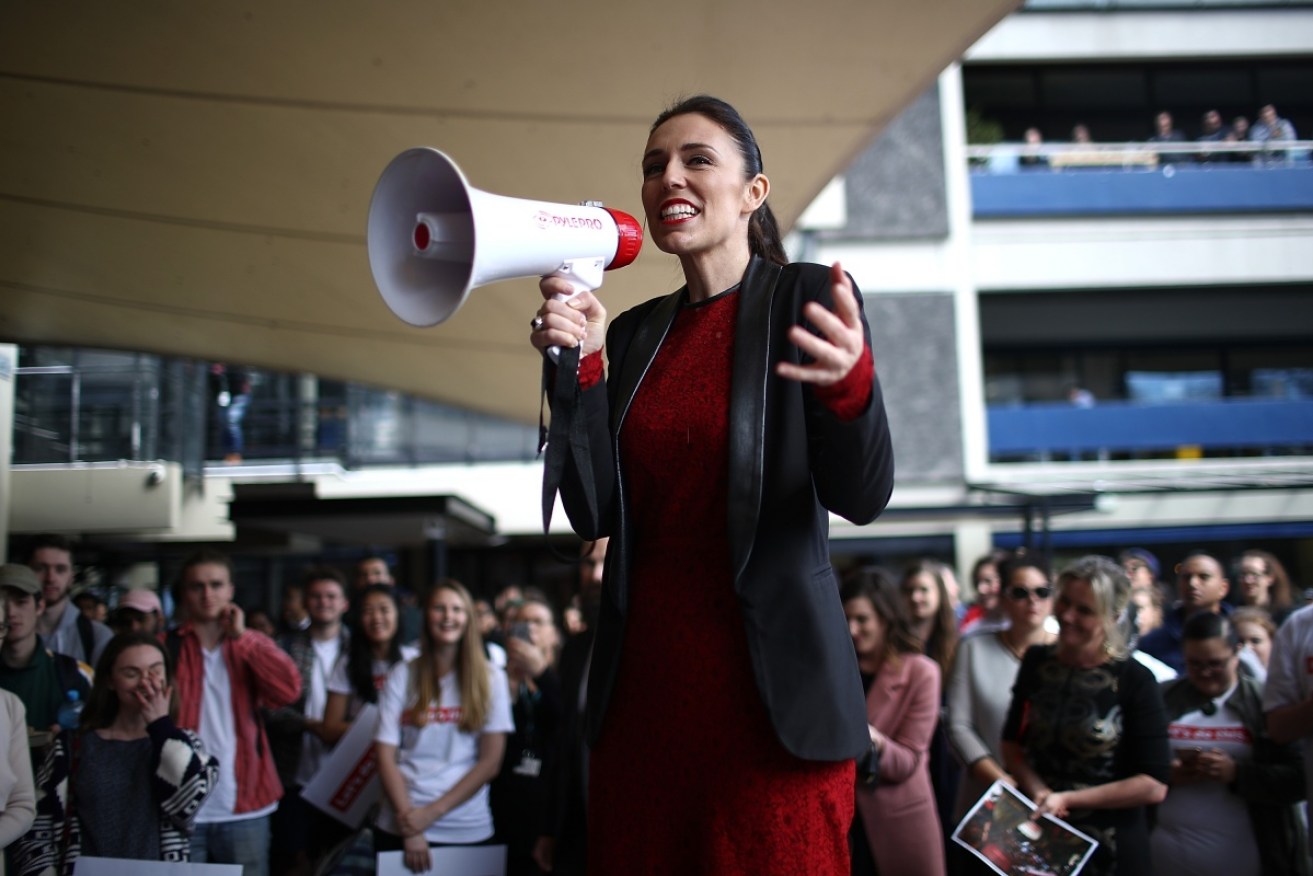‘Capitalism has failed’: Jacinda Ardern signals a major economic shift

Ms Ardern is sticking by his criticisms of capitalism. Photo: Getty
New Zealand’s new left-wing government, comprised of a coalition between Labour and the protectionist NZ First, with support on supply from the Greens, has signalled a radical shift in economic policy.
In her first televised interview since being gifted the prime ministership, Labour leader Jacinda Ardern said homelessness and poverty were proof that capitalism had failed New Zealanders on low incomes.
“If you have hundreds of thousands of children living in homes without enough to survive, that’s a blatant failure. What else could you describe it as?” Ms Ardern told TV3’s The Nation.
“When you have a market economy, it all comes down to whether or not you acknowledge where the market has failed and where intervention is required. Has it failed our people in recent times? Yes.
“Wages are not keeping up with inflation and how can you claim you’ve been successful when you have growth at roughly 3 per cent, but you have the worst homelessness in the developed world?”
Ms Ardern doubled down on this rhetoric in a later interview at the weekend, telling TVNZ’s Q&A program that she was prepared to pull out of the Trans Pacific Partnership.
“There is no point gloating about the economic growth of a nation if you have some of the highest rates of homelessness in the developed world,” she said in the later interview.
“My view is there a role for us to play where we are being much more proactive and intervening where there are signs the market is failing our people.”
Her strident rhetoric echoed that of her coalition partner Winston Peters, who used much of his nationally televised address on Friday where he announced his surprise support for Labour, to explain that his choice was primarily motivated by fears of a looming economic crisis.
“We in NZ First believe that an economic correction or a slowdown is looming and that the first signs are already here – in the housing market slowdown, in Reserve Bank and trading banks’ nervousness, in the cessation of hot money from abroad, in property ownership concerns, in receding consumer optimism, and in ebbing retailer confidence,” Mr Peters said.
“Our choice today relates to how best we mitigate, not worsen, what we believe is coming and its impact on as many New Zealanders as is possible.
“Far too many New Zealanders have come to view today’s capitalism not as their friend but as their foe and they are not all wrong. That is why we believe capitalism must regain its responsible, its human face. That perception has influenced deeply NZ First’s negotiations.”
The New Zealand economy has slowed. The annual rate of GDP growth is now 2.5 per cent, down from 3.3 per cent a year ago, and business confidence has taken a significant hit. The good news is that unemployment is low at 4.8 per cent, compared to Australia’s 5.5 per cent.
Much like Australia, the national debate in New Zealand has been dominated of late by concerns of overheated property prices and a lack of affordable housing. However, house price growth has slowed to roughly 2 per cent a year, down from recent highs of 10 per cent.
Labour and NZ First have already signalled a major government intervention in the property market with a pledge to build 10,000 affordable homes annually over the next decade. The coalition also plans to put restrictions on foreign buyers of property.
Ms Ardern has also promised a review of the NZ Reserve Bank Act. NZ First wants to add “full employment” to the bank’s inflation-targeting mandate so as to better protect workers.
Australia’s Reserve Bank has targeted its triple mandate of full employment, currency stability and economic prosperity ever since it was created by Parliament in 1959.
There are also concerns among New Zealanders that high immigration is hurting their chances of finding work. In response, Labour and NZ First have promised cuts to annual migration quotas.
Ms Ardern’s shift in economic policy may put further tension on the relationship between the Australian and New Zealand governments, given that the administration of Malcolm Turnbull is attempting to pursue a more classically free market agenda.
Much has been made of comments by Australian Foreign Minister Julie Bishop during New Zealand’s election campaign, when she accused Labour of “foreign interference”.
“I would find it very difficult to build trust with members of a political party that had been used by the Australian Labor Party to seek to undermine the Australian government,” Ms Bishop said in August.
The attack followed claims that the Australian and New Zealand labour parties collaborated to expose the fact that Australian Deputy Prime Minister Barnaby Joyce was a New Zealand citizen – a revelation that could make him ineligible to hold his seat.
Australia’s High Court is currently considering whether Mr Joyce’s election to Parliament should be ruled invalid.
In response to questions from Sky News, Ms Ardern said her first visit to Australia as Prime Minister would be a top priority.








